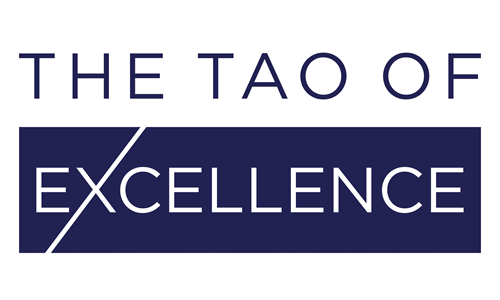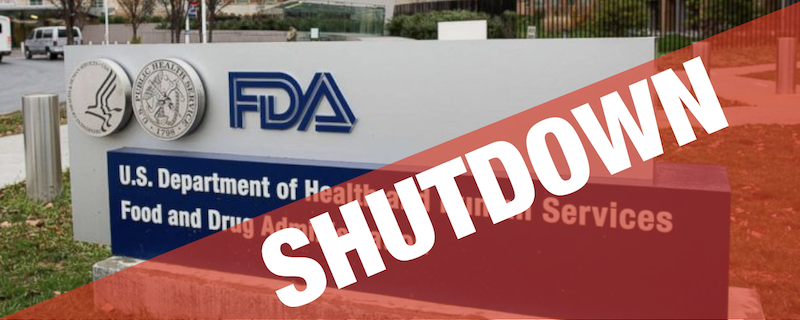The US government shutdown and its effect on medical device safety.
This is now the longest government shutdown in US history.[1] As a federal agency, the lapse in government funding has directly affected the Food and Drug Administration (FDA) and whether long-term or short-term, visible or invisible, this is likely to have a significant effect on the medical devices industry.
As a sector, medical innovation is one of the fastest paced industries worldwide with the US positioned as the largest medical device market in the world[2]—a market that is currently valued at an estimated $400 billion.[3]
However, in late December 2018, the US government shutdown led to the FDA’s announcement that it had furloughed approximately 40% of its employees. Whilst the FDA Commissioner Scott Gottlieb assured Americans that the FDA will continue to protect public health and safety against “imminent threats to the safety of human life”, they will not be able to review medical device applications submitted during the lapse period. Regrettably this will also affect its output of regulatory guidance documents for medical devices, as these sectors rely on funding through industry user fees (MDUFA).[4]
Gottlieb has said he expects the 2018 fees to run out around February 8th. These fees fund the “efficiency of regulatory processes with a goal of reducing the time it takes to bring safe and effective medical devices to the US market.”[5] During a government shutdown the FDA is not legally authorized to accept user fees for the 2019 fiscal year. To date, the delay and disruption caused by this funding gap still shows no signs of abating.
Speaking to The Washington Post, Gottlieb has said that “a core part of the FDA is advancing innovations that will benefit patient care” and that currently the FDA is “trying to make prudent decisions to keep that process going.”[6] Yet, as the Financial Times most recently outlined, delays, disruptions and dents to “consumer and business confidence” are symptomatic of such shutdowns. Ethan Harris, head of global economics research at Bank of America Merrill Lynch states, confirmed to the FT that “there is a sensitivity in the markets to signs of dysfunction in Washington.”[7]
The current political impasse could additionally affect the FDA’s commitment to make the National Evaluation System for health Technology Coordination Centre (NESTcc) operational by the end of 2019. This centre is funded by both industry user fees and the FDA and is designed to “accelerate the development and translation of new and safe health technologies, leveraging Real-World Evidence (RWE), and innovative research.”[8]
Notably in a statement released in November 2018, the FDA confirmed that the success of this project relies on the budget for fiscal year 2019. That budget includes “a request for an additional $46 million for The Centre for Devices and Radiological Health (CDRH) to support NEST, as well as to conduct FDA-sponsored post-market studies that address device-specific safety concerns.”[9] And the safety of medical devices will be a central focus in government and industry over the coming year.
Last year, a high-profile investigation run by the International Consortium of Investigative Journalists’ (ICIJ)—involving 250 journalists from 58 news organisations across 36 countries—revealed the need to modernise and improve a number of outdated regulations in the medical devices industry.[10] Whilst the ICIJ’s investigation, The Implant Files, did add positive pressure to address necessary changes, the report created an atmosphere of uncertainty in the reputation of a market whose ultimate agenda is to help and heal.
Governments and the medical devices industry immediately sought to reassure both the market and public through a series of initiatives aimed at re-evaluating regulatory processes. In a statement issued by Gottlieb, he committed the agency to a “more robust medical device safety net for patients through better data” and the goal of ensuring that “the FDA is consistently first among the world’s regulatory agencies to identify and act upon safety signals related to medical devices.”[11]
Supporting medical innovation and invention is crucial to our future health. This relies on a commitment to invest and market stability, both of which are affected by uncertainty caused by Brexit,[12] Medical Devices Regulation (MDR) in the EU and governmental “dysfunction in Washington.” As described by the FT, “the record-breaking US government shutdown is triggering ripple effects across the US economy.”[13] Although this will particularly affect sectors where confidence is key—such as new investments and start-up companies—delays to the operations at the FDA also disrupt initiatives focused on the safety of medical devices.
The Tao of Excellence is ideally placed to deliver solutions on topics such as quality management and regulatory requirements. With specialist expertise designing smart processes for manufacturing and management, The Tao of Excellence delivers efficient and effective results that enable clients to deliver safer and more effective medical devices to the market at speed. For more detail or a specialist market report contact us today.
 Jasminka Roth
Jasminka Roth
Founder and Director of The Tao of Excellence
Phone
+41 52 685 51 65
Email
[email protected]
Did you like this article? Follow us on LinkedIn and Twitter!
[1] https://www.nytimes.com/interactive/2019/01/09/us/politics/longest-government-shutdown.html?module=inline
[2] https://www.getconvey.com/resource/medical-device-statistics/
[3] https://www.icij.org/blog/2018/11/implant-files-prompt-immediate-response-before-first-stories-published/
[4] https://www.forbes.com/sites/joshuacohen/2019/01/10/partial-government-shutdowns-impact-on-fda-drug-approvals/#61e0cd982d08
[5] https://www.fda.gov/ForIndustry/UserFees/MedicalDeviceUserFee/default.htm
[6] https://www.washingtonpost.com/national/health-science/fda-directs-dwindling-resources-toward-reviewing-new-drugs/2019/01/17/cdad8496-1a91-11e9-9ebf-c5fed1b7a081_story.html?noredirect=on&utm_term=.35c36c0ee728
[7] https://www.ft.com/content/b4970904-1907-11e9-9e64-d150b3105d21
[8] https://nestcc.org/2019-prospective/
[9] https://www.fda.gov/NewsEvents/Newsroom/PressAnnouncements/ucm626286.htm
[10] https://www.icij.org/investigations/implant-files/
[11] https://www.fda.gov/NewsEvents/Newsroom/PressAnnouncements/ucm626286.htm
[12] https://www.nytimes.com/2019/01/12/us/politics/brexit-shutdown-us-britain-trump.html
[13] https://www.ft.com/content/b4970904-1907-11e9-9e64-d150b3105d21

